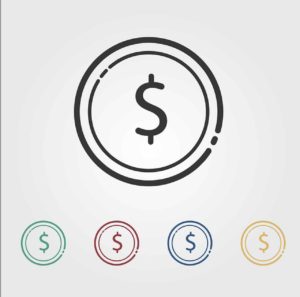Key Takeaways
- Owner-only Solo 401(k)s is a great way for business owners to pay less taxes, including being able to tuck away up to $66,000 in 2023. The spouse can also put away an additional $66,000.
- Although Solo 401ks come with certain responsibilities, typically the benefits outweigh the duties.
A Solo 401(k), or owner-only 401(k), is a small business retirement plan designed for business owners and their spouses. It provides great benefits, including high contribution limits and ease of government compliance. As a simplified plan, the Solo 401(k) is simple to manage. Or is it? Sure the plan owner can perform administrative duties and direct his or her own investments. This flexibility, however, also comes with certain responsibilities that must be handled carefully. Before we start, let’s first quickly go through why an owner-only 401(k) is a great retirement benefit plan for business owners.
Benefits of Solo 401(k) plans
Here are eight (8) benefits of offering a Solo 401(k):
1. High contribution limits. $66,000 for 2023, or if age 50 and older $73,500
2. Owner-only 401(k) plans allow tax-deductible contributions
3. Contributions grow tax-free
4. 401(k) plans can be rolled over to an IRA or to another qualified plan at retirement
5. Business owners’ spouses further increase tax deductions
6. Owner-only 401(k) plans may reduce payroll taxes
7. Loan option is available in owner-only 401(k) Plans
8. 401(k) plans provide creditor protection
401(k) plan document maintenance
A plan document governs a retirement plan’s features and day-to-day operations. Your plan document identifies what kind of plan it is, how it works and what special features it has to customize it to your business’ needs and goals. This 401(k) document must be kept current with the DOL/IRS rules and regulations. This typically means updating the document every six (6) years and amending the plan for any required/interim amendments due to law changes.
When the total plan asset exceeds $250,000
An owner-only plan requires little administrative effort from the plan owner for the most part, mainly bookkeeping work. When it comes to tax filing, often there is no annual filing requirement for a Solo 401(k) plan. However, this will change if/when your plan’s total value exceeds $250,000 at any time during the tax year.
When your plan value hits this threshold, you will have to file IRS Form 5500 annual return/report for your Solo 401(k). The return must be filed with the IRS by the end of 7th month following the end of the plan calendar year (usually by July 31st).
IRS focus
Solo 401(k) plans have been an area of concern for the IRS for many years, not because they are inherently bad but rather because they are frequently sold by financial institutions to individual business owners as a DIY type of plan that required little to no maintenance. In fact, it is not uncommon for the business owner to be handed a blank plan document adoption agreement to fill out for themselves without any guidance on what the various provisions mean or require in terms of ongoing compliance.
Final words
As we can see, business owners love Solo 401(k) plans because of the benefits they provide. If the business owner doesn’t want to deal with the responsibilities that come with the Solo 401(k) (of course, we don’t recommend), best to outsource it to a retirement plan specialist who can ensure your plan is always up-to-date and provide you valuable insight and guidance.
This is for educational purposes only. The information provided here is intended to help you understand the general issue and does not constitute any tax, investment or legal advice. Consult your financial, tax or legal advisor regarding your own unique situation and your company’s benefits representative for rules specific to your plan.

About the Author
A 15-year veteran in all aspects of workplace retirement plan benefits program, Mizan J. Rahman is on a mission to help hard-working Americans enjoy a meaningful financial future. He specializes in the compliance, administration, design, and legal documentation of 401(k), 403(b), and 457(b) plans. Mizan provides high-level, personalized consulting to small businesses and not-for-profit organizations. One of the select few to have been awarded Enrolled Retirement Plan Agent (“ERPA”) by the Internal Revenue Service, Mizan regularly represents clients in front of DOL and IRS during audits.
Ready to Work with NESA? Or Have a Question?



